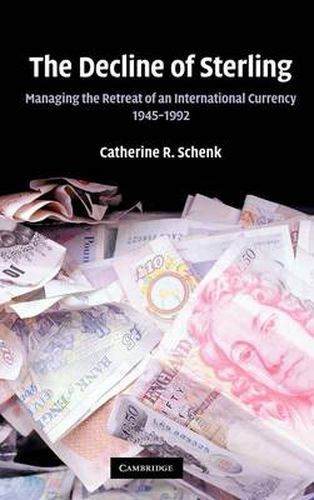Readings Newsletter
Become a Readings Member to make your shopping experience even easier.
Sign in or sign up for free!
You’re not far away from qualifying for FREE standard shipping within Australia
You’ve qualified for FREE standard shipping within Australia
The cart is loading…






The demise of sterling as an international currency was widely predicted after 1945, but the process took thirty years to complete. Why was this demise so prolonged? Traditional explanations emphasize British efforts to prolong sterling’s role because it increased the capacity to borrow, enhanced prestige, or supported London as a centre for international finance. This book challenges this view by arguing that sterling’s international role was prolonged by the weakness of the international monetary system and by collective global interest in its continuation. Using the archives of Britain’s partners in Europe, the USA and the Commonwealth, Catherine Schenk shows how the UK was able to convince other governments that sterling’s international role was critical for the stability of the international economy and thereby attract considerable support to manage its retreat. This revised view has important implications for current debates over the future of the US dollar as an international currency.
$9.00 standard shipping within Australia
FREE standard shipping within Australia for orders over $100.00
Express & International shipping calculated at checkout
The demise of sterling as an international currency was widely predicted after 1945, but the process took thirty years to complete. Why was this demise so prolonged? Traditional explanations emphasize British efforts to prolong sterling’s role because it increased the capacity to borrow, enhanced prestige, or supported London as a centre for international finance. This book challenges this view by arguing that sterling’s international role was prolonged by the weakness of the international monetary system and by collective global interest in its continuation. Using the archives of Britain’s partners in Europe, the USA and the Commonwealth, Catherine Schenk shows how the UK was able to convince other governments that sterling’s international role was critical for the stability of the international economy and thereby attract considerable support to manage its retreat. This revised view has important implications for current debates over the future of the US dollar as an international currency.